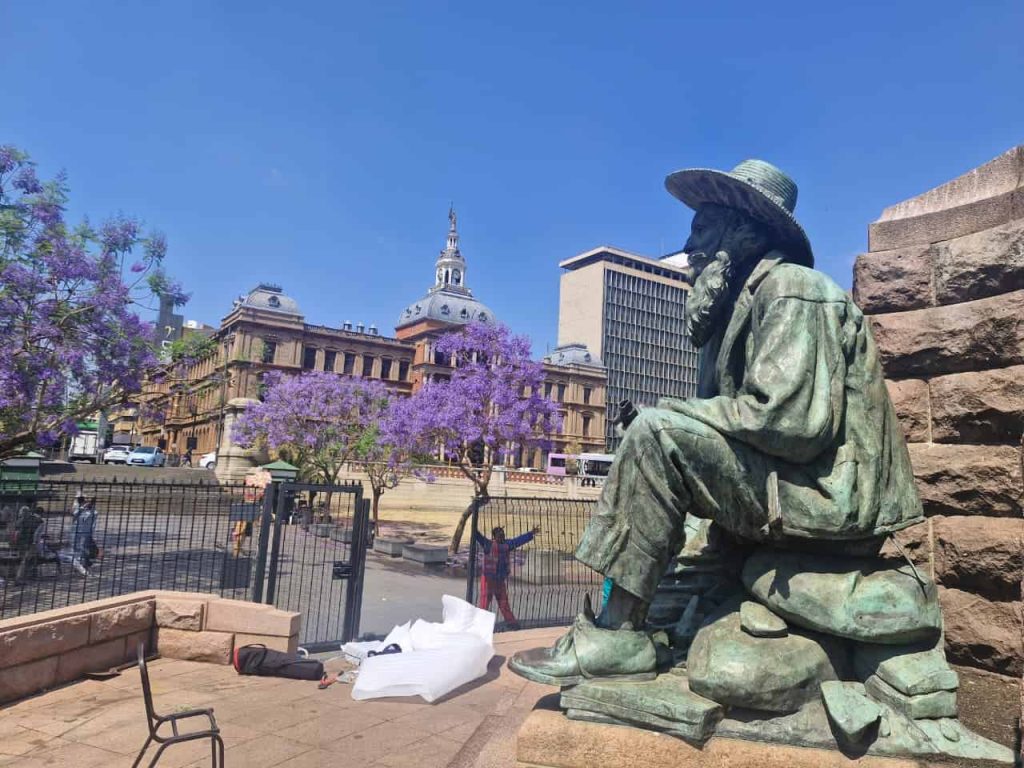AfriForum submitted comments on draft taxation legislation
AfriForum has submitted our comments on draft taxation legislation, focusing specifically on the proposal to scrap tax exemption on foreign income.
This follows after the public had been invited to comment on the 2017 Draft Taxation Laws Amendment Bill and the 2017 Draft Tax Administration Laws Amendment Bill.
Amongst others, Prof Jannie Rossouw (Head of the School of Economic and Business Sciences, University of the Witwatersrand) has been warning for many years that South Africa is heading for a fiscal cliff if the present trends in social assistance expenditure and the growth rate in public service remuneration were to continue. The government’s main revenue sources at present are personal income tax, value-added tax (VAT) and company tax, and these are also likely to be the main sources for raising additional revenue. However, these sources are not inexhaustible.
The fact that it is now proposed to levy tax on international income, irrespective of a citizen’s place of residence, seems to suggest that the state is desperate to find additional ways in which income tax can be increased, irrespective of the detrimental consequences of such steps.
AfriForum used the opportunity to comment on the tax bills to call attention to such consequences.
In our opinion the current residence-based taxation system is fair, as tax payers are paying income tax on the income generated in the country where they are present for the majority of the tax year in return for the services provided to them by that state. AfriForum has contact with thousands of South Africans living abroad either permanently or temporarily, and we state unequivocally that to abandon this system, would have numerous negative outcomes not only for these citizens, but for the South African economy in general.
If a person spends the majority of the year outside South Africa, it is only fair for him/her to be taxed in and by the country where most of the time is spent. If that country declines the right to levy income tax on that person, it is no concern of South Africa as he or she is not utilising the infrastructure or services of South Africa. The fact that the person holds South African citizenship is in itself insufficient cause for him or her to be taxed. Income tax cannot be a “payment” for citizenship.
Assurances have been provided that if a South African were to be taxed in the country of residence, he or she would be allowed to claim back taxes paid. Whether this would apply to all countries and whether SARS would be able to handle this additional burden on its resources, remains unclear. It is quite possible that people might end up waiting for claims to be paid out and in the process incur debts to tie them over – a risk which results in South Africans abroad seriously considering renouncing their South African citizenship. By renouncing their nationality, they might forfeit the right to own property in South Africa in future (if other draft legislation is passed) and they also renounce the right of following generations to hold citizenship by descent. This seems to leave them in a Catch 22 situation.
AfriForum regularly polls South Africans on the reasons why they are working abroad. They are often required by South African-based employers to do so, in order to support company interests in other countries or to gain international experience that they can plough back into the South African economy at a later stage. If tax prevents this kind of exchange of staff, it will be detrimental to the local skills levels and the economy in general.
Other South Africans are forced to work outside of the country’s borders as they cannot find employment in South Africa. With an official national unemployment rate of 27.7% in the second quarter of 2017, it is obvious that the South African labour market cannot absorb all citizens and the fact that individuals are enterprising enough to find employment elsewhere lessens the burden on tax payers in South Africa, as well as on welfare organisations that have to support the indigent in South Africa.
We have also found that South Africans who work abroad, tend to invest in South Africa and to support family, friends or worthy causes in the country. This evidence of remittance spending concurs with the findings of many international studies that money “sent home” by migrants competes with international aid as one of the largest financial inflows to developing countries. Workers’ remittances have become a significant part of international capital flows, also in respect of South Africa.
Re the investment, South Africans tend to buy property in South Africa for when they remigrate, or create formal investments in order to be able to retire or start an own business upon their return to the country.
If they were to become taxed on foreign income, many people would definitely either terminate such remittances, or renounce their South African citizenship, or resign abroad and join the 27.7% officially unemployed South Africans. Whatever course of action they decide on, it would be detrimental to the South African economy which is already suffering under severe strain.
StatsSA’s emigration figure for 2006 to 2016 indicate that the largest group of emigrants are between the ages of 25 and 39. Due to stringent immigration legislation all over the world most of these emigrants or migrants also are highly skilled individuals. It is of the utmost importance to retain their goodwill and skills for South Africa. This can be done by allowing them to participate in national elections, a right AfriForum and others had defended successfully in the Constitutional Court in the past. Another way in which this can be done, is by retaining the tax exemption on foreign income.
Against the backdrop of this perspective, we appeal most urgently that tax exemption on foreign income should be retained.
Confirmation has been given that our comments were received. AfriForum now awaits further developments and remains committed to defend the rights of our compatriots abroad.
Share on
Latest articles




















